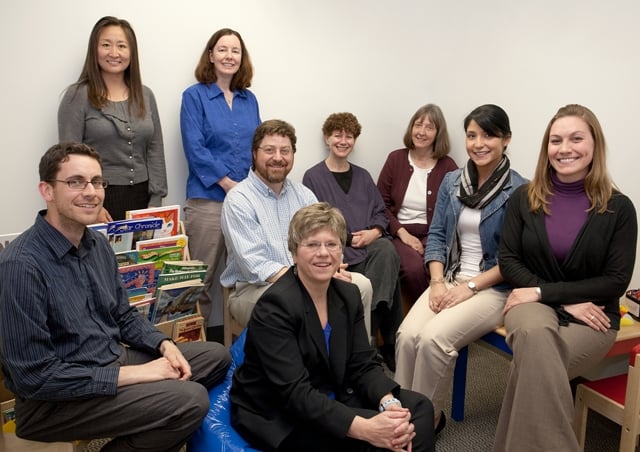Tea with MDs connects community with child and adolescent psychiatry experts

The Child and Adolescent Neurodevelopment Initiative (CANDI) of the UMass Medical School Division of Adolescent and Child Psychiatry is presenting the next installment of its community education series Tea with MDs. Taking place at the Worcester Public Library on Wednesday, Nov. 17, from 6:30 to 8:30 p.m., the program, “Alternative Medicine and Treatments,” is free and open to the public.
Presented by CANDI in cooperation with the Worcester-based Parent/Professional Advocacy League and the Autism Resource Center of Central Massachusetts, Tea with MDs brings child and adolescent psychiatrists together with community members to provide information and answer questions on a range of mental health disorders. Following a presentation by Jean Frazier, MD, the Robert M. and Shirley S. Siff Chair in Autism, professor of psychiatry and pediatrics, and vice chair for child and adolescent psychiatry at the Medical School, audience members can ask questions. The program will also feature demonstration Reiki chair massages provided by licensed practitioners from the Simon-Hurd Complementary Care Center at HealthAlliance Hospital—Burbank Campus in Fitchburg.

In addition to offering resources and support, Tea With MDs introduces the community to the cutting-edge neuroscientific research CANDI is conducting under the co-leadership of Dr. Frazier and David N. Kennedy, PhD, professor of psychiatry. One of a handful of research sites in the country committed to working with children and adolescents with some of the most severe behavioral and emotional challenges, CANDI is dedicated to neuroimaging and treatment studies for diagnosis and treatment.
“Children and families going through life with neurodevelopmental disorders face tremendous challenges in both diagnosis and treatment,” said Frazier. “In partnership with those who participate in our studies, we can advance our knowledge, improve care and offer new hope to families.”
To learn more about Tea with MDs, CANDI and the Division of Child and Adolescent Psychiatry’s education, research and public service activities, visit www.umassmed.edu/psychiatry/index.aspx.